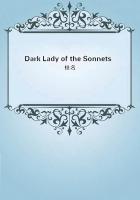Grattan moved an address to the throne asserting the legislative independence of Ireland. The address passed the House, and, as his daughter tells us, Mr. Edgeworth immediately published a pamphlet. Miss Edgeworth continues as follows, describing his excellent course of action: 'My father honestly and unostentatiously used his utmost endeavours to obliterate all that could tend to perpetuate ill-will in the country. Among the lower classes in his neighbourhood he endeavoured to discourage that spirit of recrimination and retaliation which the lower Irish are too prone to cherish. They are such acute observers that there is no deceiving them as to the state of the real feeling of their superiors. They know the signs of what passes within with more certainty than any physiognomist, and it was soon seen by all those who had any connection with him that my father was sincere in his disdain of vengeance.' Further on, describing his political feelings, she says that on the subject of the Union in parliamentary phrase he had not then been able to make up his mind. She describes with some pride his first speech in the Irish House at two o'clock in the morning, when the wearied members were scarcely awake to hear it, and when some of the outstretched members were aroused by their neighbours to listen to him! 'When people perceived that it was not a set speech,' says Miss Edgeworth, 'they became interested.' He stated his doubts just as they had occurred as he threw them by turn into each scale. After giving many reasons in favour of what appeared to be the advantages of the Union, he unexpectedly gave his vote against it, because he said he had been convinced by what he had heard one night, that the Union was decidedly against the wishes of the majority of men of sense and property in the nation. He added (and surely Mr. Edgeworth's opinion should go for something still) that if he should be convinced that the opinions of the country changed, his vote would be in its favour.
His biographer tells us that Mr. Edgeworth was much complimented on his speech by BOTH sides, by those for whom he voted, and also by those who found that the best arguments on the other side of the question had been undoubtedly made by him. It is a somewhat complicated statement and state of feeling to follow; to the faithful daughter nothing is impossible where her father is concerned. This vote, I believe, cost Mr. Edgeworth his peerage.
'When it was known that he had voted against the Union he became suddenly the idol of those who would previously have stoned him,'
says his devoted biographer. It must not, however, be forgotten that Mr. Edgeworth had refused an offer of L3000 for his seat for two or three weeks, during that momentous period when every vote was of importance. Mr. Pitt, they say, spent over L2,000,000 in carrying the measure which he deemed so necessary.
IV
As a rule people's books appeal first to one's imagination, and then after a time, if the books are good books and alive, not stuffed dummies and reproductions, one begins to divine the writers themselves, hidden away in their pages, and wrapped up in their hot-press sheets of paper; and so it happened by chance that a printed letter once written by Maria Edgeworth to Mrs.
Barbauld set the present reader wondering about these two familiar names, and trying to realise the human beings which they each represented. Since those days Miss Edgeworth has become a personage more vivid and interesting than any of her characters, more familiar even than 'Simple Susan' or 'Rosamond of the Purple Jar.' She has seemed little by little to grow into a friend, as the writer has learnt to know her more and more intimately, has visited the home of that home-loving woman, has held in her hands the delightful Family Memoirs, has seen the horizons, so to speak, of Maria Edgeworth's long life. [Now published and edited by Mr. Hare (Nov. 1894).] Several histories of Miss Edgeworth have been lately published in England. Miss Zimmern and Miss Oliver in America have each written, and the present writer has written, and various memoirs and letters have appeared in different magazines and papers with allusions and descriptions all more or less interesting. One can but admire the spirit which animated that whole existence; the cheerful, kindly, multiplied interest Maria Edgeworth took in the world outside, as well as in the wellbeing of all those around her. Generations, changes, new families, new experiences, none of these overwhelmed her. She seemed to move in a crowd, a cheerful, orderly crowd, keeping in tune and heart with its thousand claims; with strength and calmness of mind to bear multiplied sorrows and a variety of care with courage, and an ever-reviving gift of spirited interest. Her history is almost unique in its curious relationships; its changes of step-mothers, its warm family ties, its grasp of certain facts which belong to all time rather than to the hour itself. Miss Edgeworth lived for over eighty years, busy, beneficent, modest, and intelligent to the last. When she died she was mourned as unmarried women of eighty are not often mourned.
The present owner of Edgeworthstown told us that he could just remember her, lying dead upon her bed, and her face upon the pillow, and the sorrowful tears of the household; and how he and the other little children were carried off by a weeping aunt into the woods, to comfort and distract them on the funeral day. He also told us of an incident prior to this event which should not be overlooked. How he himself, being caught red-handed, at the age of four or thereabouts, with his hands in a box of sugar-plums, had immediately confessed the awful fact that he had been about to eat them, and he was brought then and there before his Aunt Maria for sentence. She at once decided that he had behaved Nobly in speaking the truth, and that he must be rewarded in kind for his praiseworthy conduct, and be allowed to keep the sugar-plums!















